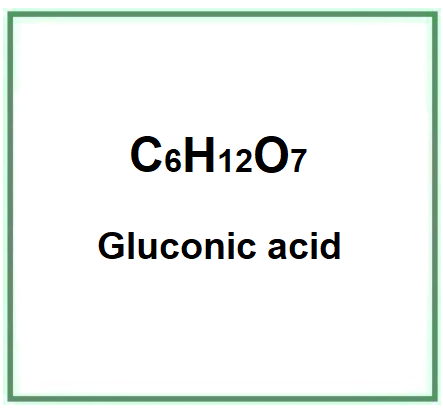E574 (Gluconic acid) is an organic chemical compound, carboxylic acid and the product of microbial c-1 oxidation of glucose. It occurs naturally in plants, honey, grapes. It is an intermediate in the glucose oxidation pathway.
It appears as a yellow liquid.

What it is used for and where
Food
Ingredient included in the list of European food additives as E574 with the function of antioxidant, acidity regulator. Improves the organoleptic properties of foodstuffs, imparting a particular, less bitter flavour. In fruit juices, it prevents cloudiness (1). It is an ingredient that has been proposed as a quality parameter for food products (2).
Cosmetics
Chelating agent. It has the function of preventing unstable reactions and improving the bioavailability of chemical components within a product, and removes calcium and magnesium cations that can cause cloudiness in clear liquids.
Fragrance. It plays a decisive and important role in the formulation of cosmetic products as it provides the possibility of enhancing, masking or adding fragrance to the final product, increasing its marketability. The consumer always expects to find a pleasant or distinctive scent in a cosmetic product.
Other uses
- Growth-promoting substance for bifidobacteria
- Textiles, leather, metallurgy, animal feed
- Molecular Formula C6H12O7 C6H12O7
- Molecular Weight 196.16
- CAS 526-95-4
- UNII R4R8J0Q44B
- EC Number 208-401-4
References_____________________________________________________________________
(1) Kornecki, J.F., Carballares, D., Tardioli, P.W., Rodrigues, R.C., Berenguer-Murcia, Á., Alcantara, A.R. and Fernandez-Lafuente, R., 2020. Enzyme production of D-gluconic acid and glucose oxidase: successful tales of cascade reactions. Catalysis Science & Technology, 10(17), pp.5740-5771.
(2) Gomes, R.J., de Fatima Borges, M., de Freitas Rosa, M., Castro-Gómez, R.J.H. and Spinosa, W.A., 2018. Acetic acid bacteria in the food industry: systematics, characteristics and applications. Food technology and biotechnology, 56(2), p.139.
![]() E574
E574 






